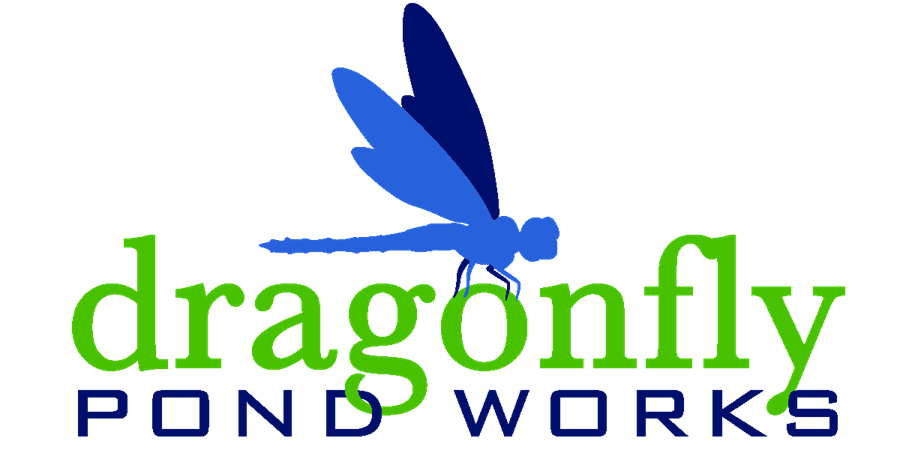Bioretention Maintenance: Healthy, Compliant Stormwater Systems
Bioretention maintenance tips by Dragonfly Pond Works in Raleigh, Durham, Cary, Charlotte, Wilmington, North Carolina and Beyond!
A bioretention is a type of stormwater control measure (SCM) that is highly effective at removing sediment and a variety of pollutants from stormwater runoff. This stormwater control measure also helps manage local water levels during rain events. Stormwater is filtered through the system biomedia (soil-based material) before reaching underdrains to be transported downstream.
Example of a healthy bioretention. Specialized bioretention maintenance will keep the system compliant and functioning as intended.
Unfortunately, the functioning of the stormwater control measure can be compromised if proper bioretention maintenance is not completed routinely.
Potential Issues Due to Neglect or Poor Bioretention Maintenance
Poor water infiltration
Clogged biomedia from sedimentation and pollutants
Flooding
Fines
Overgrown Vegetation
Decomposed mulch
Transforming into a stagnant mosquito-infested swamp
Leaks in outlets, inlets, and risers can lead to dangerous sinkholes
This bioretention became clogged from sediment entering the system over a number of years. This made the bioretention hold water far longer than the preferred 12-18 hour period. Restoration required the removal of the planted woody vegetation, degraded biomedia, and clogged underdrains.
As a stormwater management company, Dragonfly Pond Works is experienced in restoring and maintaining bioretentions with our specialized crews. Here are our top expert tips for the best bioretention maintenance practices.
Bioretention Maintenance Tips:
Regularly remove trash- Not only is trash an eyesore and pollutant, it can also clog the system
Trim/cut vegetation in the bioretention regularly. It is important for sunlight to reach the water on the basin bottom
Trees are often on the planting plan for many bioretentions, however, when these become large and mature their root systems can clog the system and lead to issues with underdrains. That is why we converted the mulched bioretention in the photo above to a grass bioretention
If it is a mulched bioretention, make sure to remove the decomposed mulch from the basin every year and replace it with fresh triple or double shredded hardwood mulch. Mulch degrades relatively quickly and the decomposed material will negatively impact infiltration
Sedimentation in inlets- Watch out for the accumulation of excess sediment entering the system. Bioretentions are designed to filter sediment out of the water, however, excess sediment can clog the biomedia and signal an area of erosion downstream. Identify and remedy the cause downstream
Proper infiltration- The bioretention bottom should be dry 12-18 hours after a rain event. If this is not the case the issue should be identified. This often means the biomedia has degraded and needs to be replaced
Perforated underdrains- Underdrains may become clogged, especially if they have been wrapped in fabric. If the system is not draining properly, this could be a cause
NEVER DRIVE EQUIPMENT THROUGH A BIORETENTION!- Equipment can compact materials in the system and lead to draining issues
Specialized Maintenance Crews:
Specialized stormwater maintenance crews possess the knowledge necessary to properly maintain your bioretention. We have restored numerous systems due to improper or non-existent bioretention maintenance leading to a non-functioning system. In one such case, landscapers were maintaining the bioretention and drove their equipment through the system bottom. This led to compaction and the entire bioretention had to be excavated and replaced with new biomedia. Keep your system healthy and functioning by utilizing specialized stormwater maintenance crews. Please contact us to learn more.
Learn More!
Read about our restoration of an overgrown, neglected Raleigh Bioretention. Learn about one of our customized maintenance plans that treated a retention pond overgrown with lilies.
Subscribe to our newsletter to receive informative and engaging news delivered right to your inbox.
Dragonfly Pond Works is a lake, pond, and stormwater management company. We provide stormwater services, bioretention maintenance, and more throughout North Carolina, in Raleigh, Durham, Charlotte, Cary, and Wilmington. Our pond and lake maintenance services can be found throughout Florida, in Tampa, St. Petersburg, Naples, Sarasota, Fort Myers, and Orlando. We also provide our services in Myrtle Beach, Charleston, Columbia, South Carolina, and Atlanta, Georgia. We strive to develop long-term relationships based on quality work, timely service, cost-efficiency, and of course, trust.
Find us on Facebook, Twitter, Instagram, and LinkedIn for news, events, and more!


